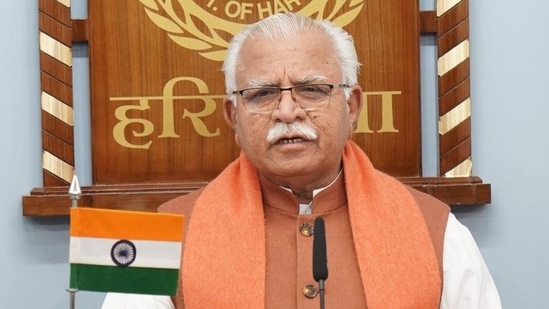Haryana issues guidelines to stop dismissing employees without inquiry
Article 311 empowers the competent authority to dismiss, remove or reduce in rank a government employee subject to various riders
Following the Punjab and Haryana high court’s observations that the competent authorities are ignoring the settled law regarding dismissal of an employee under Article 311 (2) (b) of the Constitution, the Haryana government has rolled out instructions applying brakes on the practice of dismissing a government employee without an inquiry.

Also Read| ASI recruitment scam: Chandigarh Police constable among three held
Article 311 empowers the competent authority to dismiss, remove or reduce in rank a government employee subject to various riders.
Referring to a series of Supreme Court judgments, the Haryana government on Tuesday informed the top-rung officers that the subjective satisfaction of the competent authority for dispensing with regular departmental inquiry must be based on “cogent material and regular inquiry cannot be dispensed with solely on the ‘ipse dixit’ of the concerned competent punishing authority.”
Also Read| Punjab irrigation scam: HC restrains VB from taking coercive action against ex-Punjab chief secy
While dealing with a case of Punjab police constable, who on December 1, 2021was dismissed from service by invoking Article 311 (2) (b), the high court in a July 4, 2022 order had stated that “a large number” of writ petitions are being filed against the order of dismissal invoking Article 311(2)(b) of the Constitution of India.
“The competent authorities are ignoring the law as settled by the Supreme Court regarding dismissal of an employee under Article 311(2)(b) of the Constitution of India, which leads to the impugned orders being set aside,” the court had stated.
The high court had then sent a copy of the order to the chief secretaries of Punjab and Haryana as well as the advisor to administrator of Union Territory Chandigarh and wanted the state governments to look into this issue. The court wanted the governments to apprise the competent authorities about the relevant case law pertaining to invoking Article 311(2)(b) of the Constitution at the time of seeking to summarily dismiss the government employees.
Five months after the high court order, the Haryana government on December 6 sent a two-page letter to the administrative secretaries, heads of the departments etc stating that the cases involving dismissal of a government employee without an inquiry “should invariably” be sent to the competent punishing authority for necessary orders.
Officials said the state authorities examined the matter keeping in view judgments the Supreme Court has pronounced with regard to scope of Article 311(2)(b). The letter refers to the Apex Court orders including Sudesh Kumar versus State of Haryana case in which the top court stated: “...It is now established principle of law that an inquiry under Article 311(2) is a rule and dispensing with the inquiry is an exception. The authority dispensing with the inquiry under Article 311 (2)(b) must satisfy for reasons to be recorded that it is not reasonably practicable to hold an inquiry....”
The state government has given some examples where action under Article 311(2) (b) can be taken against a government servant as holding inquiry is not practicable in view of the prevailing situation.
Stating that at this stage it isn’t possible to enumerate all the cases in which it would not be reasonably practicable to hold the inquiry, the state government has said that illustrative case for summary dismissal without inquiry could be where a civil servant (through or together with his associates) terrorises, threatens or intimidates witnesses who are likely to give evidence against him with fear of reprisal in order to prevent them from doing so.
Another example the government has cited to do away with inquiry is where the civil servant himself or through others threatens, intimidates and terrorises the officer who is the disciplinary authority or members of his family so that the officer is afraid to hold the inquiry or direct it to be held. Also the dismissal without inquiry can be recommended where an atmosphere of violence or of general indiscipline and insubordination prevails at the time of attempt to hold the inquiry.
“Therefore, it has been decided that so far as the employees of the state government are concerned, the procedure indicative above... of this letter need to be followed...However, all cases coming within the proviso (b) to Article 311(2) of the Constitution and the corresponding provisions of the Haryana Civil Services (Punishment & Appeal) Rules, 2016 should invariably be submitted to the Competent Punishing Authority for necessary orders,” the letter says, ordering “strict compliance” of these instructions.






